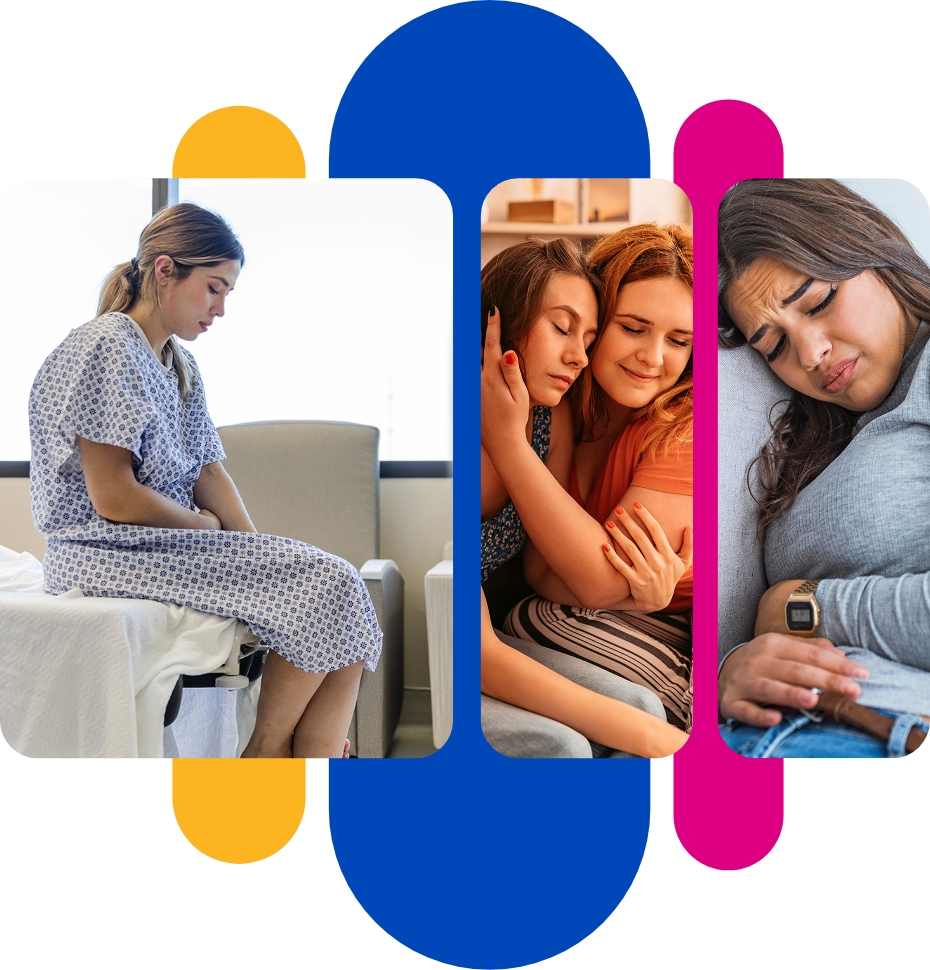
All participants were between 18 and 41 years of age.
All participants identified as female.

7 people identified as White, 2 people identified as Black Caribbean, 1 person identified as Black African, and 1 person identified as Mixed (White and South Asian).
All participants were between 18 and 41 years of age.
All participants identified as female.
7 people identified as White, 2 people identified as Black Caribbean, 1 person identified as Black African, and 1 person identified as Mixed (White and South Asian).
Participants were asked to engage in a total of 9 tasks across 6 days.
These tasks led to in-depth discussions between participants who shared both similar and different experiences, and revealed the difficult diagnosis journeys, and the excruciating daily symptoms that the participants faced.
A number of participants reported that they had waited up to 25 years for a diagnosis, and medical gaslighting was a common experience.

Transgender men, non-binary people, and people with other gender identities can experience endometriosis and often face hardships that are unique to them, and endometriosis can affect people from any ethnic background.
Here are a few things we must do moving forward, to correct the misconceptions around endometriosis, and ensure people are getting the support they need.
You can read about these in more detail
in the eBook.
Ultimately, we must listen to patients.
Only then can we create change in the clinical trial industry to positively enhance the patient experience. And if you are a patient yourself, we encourage you to share your experiences — you are not alone, and together, we can end the stigma.
Improve education about endometriosis among healthcare professionals
Implement cultural safety training among healthcare professionals
Initiate more support groups for people living with endometriosis
COUCH Health
5 Richmond Street
Manchester, M1 3HF
+44 (0) 161 300 0874
hello@couchhealth.agency
Receive exclusive insights from our experts on important topics and news within the inclusive clinical research space.